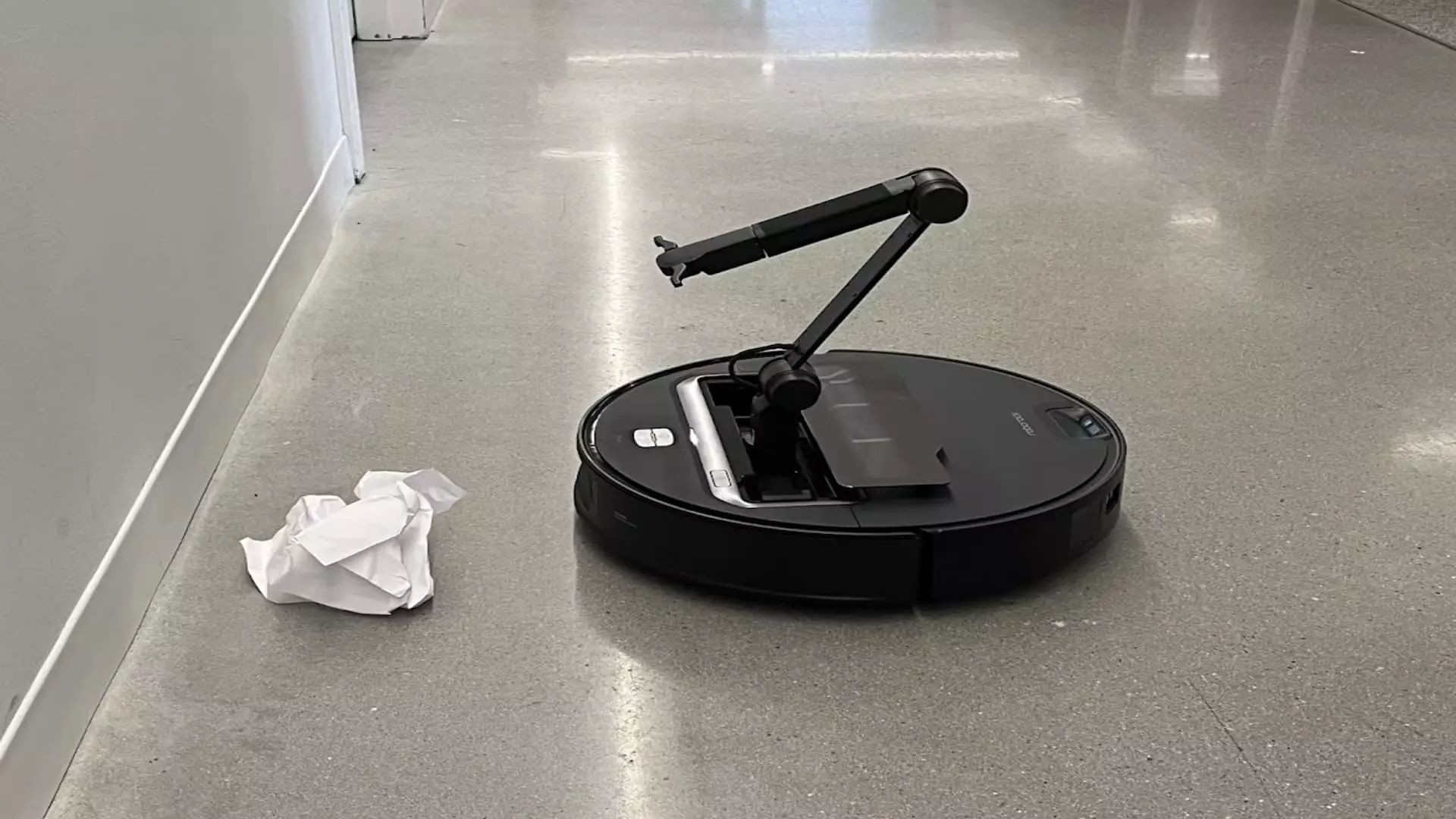In a remarkable showcase of ingenuity and foresight, Chinese robotics company Roborock has unveiled its latest model, the Saros Z70. This cutting-edge robot vacuum cleaner, equipped with a unique folding arm, aims to tackle everyday household challenges—like removing obstacles such as socks and small items—through the power of artificial intelligence. Roborock President Quan Gang’s vision is clear: he anticipates a future where robot vacuum cleaners become as household staples as washing machines, perhaps within the next three years. According to him, the burgeoning capabilities of AI herald a new era for robotic cleaning technology.
During a recent interview with CNBC, Quan articulated his confidence in AI’s potential to redefine the robotic vacuum landscape, asserting, “If the era of AI flourishing has really arrived, I’m confident that robot vacuum cleaners will be the first category to apply AI.” By capitalizing on their in-house developed AI, the Saros Z70 can identify and eliminate common household obstructions weighing less than 300 grams, which significantly enhances its utility.
Set to debut in major global markets in the first half of 2025, the Saros Z70 has sparked anticipatory excitement, though its pricing remains undisclosed. The announcement coincides with the forthcoming Consumer Electronics Show in Las Vegas, where industry innovations are unveiled annually. Since the launch of the Roomba by iRobot in 2002, the evolution of robot vacuum cleaners has been astounding, with enhancements that extend beyond vacuuming to include mopping functionalities and automated recharge capabilities.
Roborock has established itself firmly in the U.S. market since it began selling its products there in 2018, significantly increasing its market share in recent years. However, the company faces the dual dilemmas of low penetration rates of robot vacuum technology—only slightly above 10% in developed regions—and stiffer competition than ever. Despite these challenges, the growth potential remains encouraging, particularly with the strategic deployment of artificial intelligence.
The accolades for Roborock’s models continue to grow. Both The Verge and Wired have named various Roborock products as top contenders in the robot vacuum category. Notably, the S8 MaxV Ultra, priced at an impressive $1,799.99, has garnered acclaim for its hands-free capabilities, setting a benchmark for the industry. Meanwhile, the more budget-friendly Qrevo S, featured in Wired, incorporates advanced navigation features that elegantly differentiate between floor types—a testament to Roborock’s commitment to innovation.
However, the competitive landscape is fiercely contested, with major players like Ecovacs and iRobot also launching impressive models to seize consumer attention. CNET recently highlighted the Deebot T30S Combo and the Roomba Combo J7 Plus as top choices for 2025. Such dynamics suggest that Roborock needs not only to innovate but also to effectively communicate its value propositions to the discerning consumer market.
The introduction of the Saros Z70 illustrates Roborock’s ongoing commitment to innovation, reflected in its business performance. The company’s shares rose notably, reflecting market optimism following the announcement. During 2024, Roborock experienced a 23.2% increase in operating revenue, amounting to approximately 7 billion yuan ($960 million), alongside a profit of 1.47 billion yuan. These figures indicate a robust health in business operations, providing much-needed capital for ongoing innovations in its technology portfolios.
Consistent investment in research and development has been a hallmark of Roborock’s strategy since its inception in 2014. With dedicated labs and teams focused exclusively on AI advancements in Shanghai and Shenzhen, the company has made strides in laying the groundwork for long-term innovations. Quan has stated a goal of expanding their research workforce significantly, indicating the company’s ambition to remain at the forefront of the robotics market.
Roborock’s new models and commitment to artificial intelligence signify a pivotal shift in the robotics market. With the potential for robot vacuum cleaners to become household essentials, Roborock’s efforts align with broader technological trends in automation and AI implementation. As consumers increasingly seek convenience and efficiency in their cleaning routines, Roborock’s aggressive push into AI-enhanced features could spell a new era in smart home technology.
As the landscape of household appliances transforms with innovations like those from Roborock, we may very well be on the brink of a new era of domestic robotics—where cleaning the home is as effortless as pressing a button. The evolution of this technology will not only shape our living spaces but will also redefine the role of robotics in our everyday lives.

